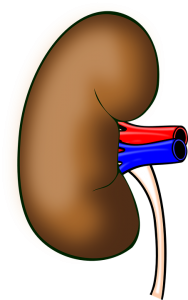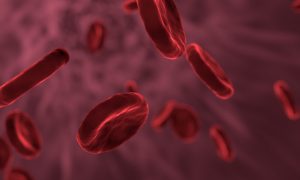Painkillers can be classified as narcotics and non-narcotics or steroidal anti-inflammatory drugs and NSAIDs (non-steroidal anti-inflammatory drugs). This article focuses on the adverse effects of non-steroidal anti-inflammatory drugs.
Adverse effects of other painkillers especially acetaminophen or paracetamol (Tylenol) shall be discussed in some other article.
Non-steroidal anti-inflammatory drugs are the most overused drugs
Non-steroidal anti-inflammatory drugs are probably the most commonly used painkiller drugs worldwide.
Most NSAIDs are available over the counter which increases its use, apart from being prescribed commonly by physicians.
The use of painkillers significantly increases with age as most of the inflammatory diseases like osteoarthritis, rheumatoid arthritis, and other painful conditions are more prevalent in elderly patients.
Commonly used NSAIDs
These include:
- Ibuprofen,
- Flurbiprofen,
- Mefenamic acid,
- Diclofenac, aceclofenac,
- Naproxen,
- Meloxicam,
- Piroxicam,
- Celecoxib,
- Etoricoxib, and many others.
Various adverse effects are associated with the use of NSAIDs
These adverse effects may range from mild skin reactions to life-threatening heart failure and renal failure.
Although painkillers affect almost every system of the body, the most common adverse effects involve the gastrointestinal tract, the kidneys, and the cardiovascular system.
Adverse effects may follow after large amounts of drugs ingested at once, but common adverse effects are seen with chronic ingestion of low dose NSAIDs.

Effects on gastrointestinal tract:
The most common gastrointestinal Side effects include ulceration, abdominal bloating, heartburn, and gastrointestinal bleeding. Gastrointestinal bleeding may at times be life-threatening.
NSAID-induced gastritis presenting as heartburn and upper abdominal pain, nausea, and vomiting is a very common presentation in the emergency and OPDs.
Adverse effects of the use of chronic ingestion of these drugs are seen frequently in elderly patients and those with autoimmune rheumatic diseases.
Treatment is aimed at neutralizing the acidic PH (alkalinizing stomach PH) by using proton pump inhibitors, H2 Receptor blockers or using misoprostol.

NSAIDs commonly affect the Kidneys
Renal involvement may range from acute renal shutdown to loss of blood pressure control and electrolyte imbalances.
Kidney damage occurs after an acute overdose of large amounts of NSAIDs but chronic ingestion of low dose can also adversely affect the kidneys. As low as two tablets of diclofenac per week for 6 to 12 months can affect the kidneys.
Kidneys can suddenly shut down because of NSAIDs induced vasoconstriction compromising blood flow to the kidneys, leading to acute tubular necrosis.
Another cause of acute kidney shutdown is interstitial nephritis. Interstitial nephritis is manifested by a rash, enlarged kidneys on ultrasound and kidney shutdown.
A condition where kidneys are unable to reabsorb proteins (nephrotic syndrome – membranous nephropathy) is common in patients using painkillers for a long time. Electrolyte imbalance includes hyperkalemia, hyponatremia, and edema.

Cardiovascular effects of NSAIDs
The cardiovascular adverse effects of these drugs are mostly related to fluid and sodium retention. Both these conditions can lead to worsening of heart failure.
Aspirin in low doses is associated with reduced events of myocardial infarction and atherosclerotic adverse events because of its effects on platelets. Selective COX 2 inhibitors have no effect on the platelets and thus have no role in the prevention of cardiac or other vascular events.
The use of NSAIDs with low dose Aspirin is discouraged because of the blunting of the effect of Aspirin and increased incidence of cardiovascular events and gastrointestinal bleeding.

Liver injury with NSAIDs is not uncommon
Liver failure is a rare complication of the chronic use of these drugs especially in those patients who are on other hepatotoxic medications.
Common adverse events include raised liver enzymes (ALT and AST) and rarely fulminant hepatic failure can occur.
Diclofenac has especially been associated with hepatitis, ANA (antinuclear antibody) positivity and histological evidence of chronic active hepatitis.
Deranged LFTs in patients on NSAIDs is strongly associated with the underlying condition. NSAIDs induced hepatotoxicity should be suspected if LFTs are more than three times the upper limit of normal with reduced albumin and abnormal coagulation profile.

Allergic reactions:
An anaphylactic reaction can also occur with their use. These are manifested by urticaria, increased or decreased heart rate, low blood pressure, abnormal cardiac rhythms, nausea, vomiting, headache, and lightheadedness.

Lung involvement can occur especially in asthmatics
Pulmonary manifestations include narrowing of the airways especially in patients who have underlying asthma.
Aspirin-exacerbated respiratory disease (AERD) is a common phenomenon in asthmatic patients. It can also present with acute narrowing of the airways, flushing, red eyes and nasal congestion.
Selective NSAIDs (like celecoxib) are less likely to cause airway narrowing lung related adverse effects. Pulmonary infiltrates on chest radiograph with eosinophilia can also occur in patients on NSAIDs.
Patients may present with fever, cough, shortness of breath, and infiltrates on chest X-Ray with increased eosinophils on peripheral smear. Treatment is with glucocorticoids.

Effects of NSAIDs on blood cells
Hematological effects are seen in patients using Non-steroidal anti-inflammatory drugs. These include mild neutropenia, anemia to bone marrow failure.
Hematological adverse effects are mostly seen in patients using indomethacin. Aspirin has beneficial cardiovascular effects due to its effects on platelet aggregation but this antiplatelet effect may be harmful in patients with preexisting platelets disorders.
In patients who are to undergo surgery Non-steroidal anti-inflammatory drugs should be stopped at least three days prior to surgery.
Patients using Ibuprofen should stop it 24 hours prior to surgery. Those on aspirin should stop it at least one week before surgery.
NSAIDs should also not be taken with anticoagulants because of its effect on coagulation profile.

NSAIDs can cause Cancers!
The use of NSAIDs has been associated with an increased risk of kidney cancer. However, studies have also shown that non-steroidal anti-inflammatory drugs may reduce the incidence of colorectal carcinoma and breast cancer.

Effect of NSAIDs on the brain
Nonsteroidal anti-inflammatory drugs may cause aseptic meningitis, psychosis, cognitive dysfunction.
In elderly patients, psychosis and cognitive impairment are more likely to occur. Aseptic meningitis is inflammation of the membranes surrounding the brain, is common in patients who use Ibuprofen and naproxen especially those with autoimmune rheumatic diseases like SLE (systemic lupus erythematosus).
Tinnitus is the ringing of Bells in the ears. It is commonly associated with the use of salicylates like Aspirin.
Tinnitus is reversible and is a warning sign of salicylates toxicity. Medication overuse headache is a common entity. It can occur in patients using painkillers for more than two to three weeks.

Effect on the eyes
Ocular manifestations include deposition of drug crystals in the cornea corneal edema and really optic neuritis skin reactions
Acute overdose of NSAIDs:
NSAIDs are usually tolerated in high doses but may be associated sometimes with severe adverse events especially in those patients who already have compromised renal, hepatic and cardiovascular systems.
The most important adverse effects are those related to the ingestion of salicylates or Aspirin.
Patients have the perception of ringing bells in their ears, vertigo, nausea, vomiting, diarrhea, increased body temperature, pulmonary edema, and coma.
Fatal aspirin intoxication occurs after the ingestion of 10 to 30 grams by adults and as low as 3 grams by children. Treatment is aimed at decontamination of the gut with activated charcoal, alkalization of plasma and urine, correction of hypokalemia and in severe cases hemodialysis.
Indications for hemodialysis include
- Altered mental status
- Pulmonary or cerebral edema
- Renal insufficiency
- Fluid-overload that prevents the administration of sodium bicarbonate
- A serum salicylate concentration of greater than 100 mg/dl
- Clinical deterioration despite conservative treatment